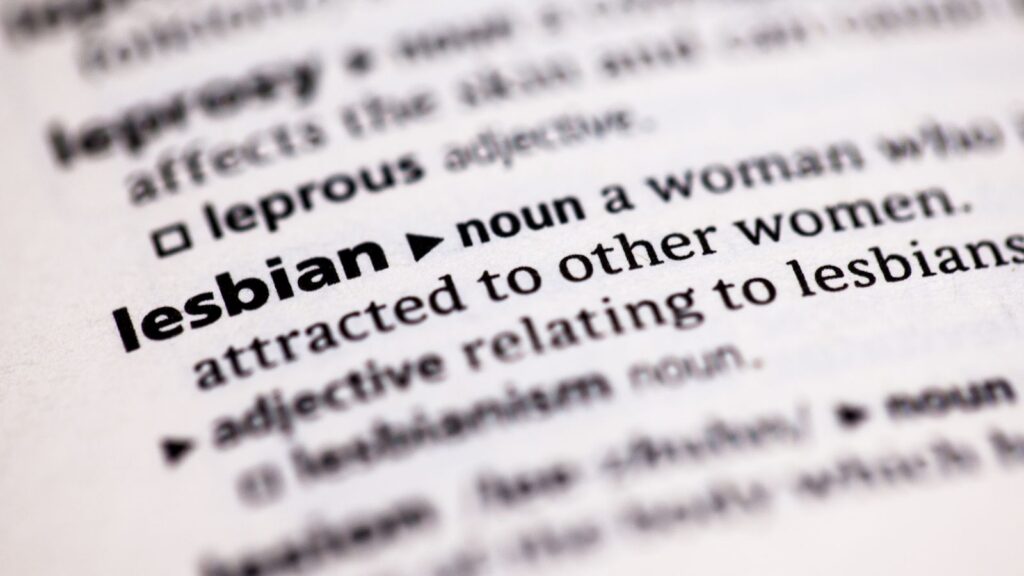Toxic femininity refers to a regressive interpretation of womanhood that falls prey to patriarchal expectations and discounts any type of woman who lands outside that box. It subscribes to a stereotype of women needing to be gentle, sensitive, passive, graceful, and, above all, pleasing to men. Just like with toxic masculinity, it encourages a culture where women are only worthy in the eyes of the men in their lives. If you’re not sold yet, here are 19 problems with toxic femininity.
It Disregards Autonomy

Autonomy is the capacity to make one’s own informed decisions without pressure from others. Toxic femininity strips that autonomy away because it forces everyone into a box and essentially makes decisions for them.
It Doesn’t Leave Room for Individuality

All women are beautiful in their own unique ways. Having a wide variety of women in our society with different hair, skin, weights, personalities, sexualities, and careers is integral to a well-rounded culture with varied perspectives. Expecting all women to fit into a thin, blonde, submissive box leaves no room for the diversity that makes our world so beautiful.
It Perpetuates Rape Culture

Toxic femininity wants women to be silent and compliant, and as a partner in crime to toxic masculinity, perpetuates a culture of women being used for whatever men please. This is part of what makes up rape culture. It places the blame on the victim and treats sexual violence as unavoidable.
It Overlooks Health Concerns

Perhaps a woman can’t fit into a certain box due to disability or health issues like chronic illness. Toxic femininity makes such women feel like they are less than and can even cause them to disregard their health to prioritize being the type of woman they think the world wants them to be.
It Can Create a Hostile Working Environment

Unsurprisingly, it can absolutely create poor working conditions for women. It can even create subconscious biases that prevent women from being promoted to leadership positions. If a woman is too “feminine,” she won’t be seen as tough enough to lead, but if she’s too “masculine,” she will be off-putting. With toxic femininity, no woman can ever win.
It Supports a Power Imbalance

Men are traditionally seen as the leaders, breadwinners, and decision-makers. This type of ideology further encourages this power imbalance and encourages women to follow along with the whims of their husbands or fathers with no regard for what they might truly desire.
It Creates an Impossible Culture of Beauty Standards

In this culture, women are shamed for trying to achieve traditional beauty standards, or they’re shamed because they aren’t trying. Female beauty in the world of toxic femininity is a nearly impossible thing to achieve and only serves to foster a sense of insecurity and inferiority for those who can’t meet the criteria.
It Discounts Trans Women

The toxic femininity view of an ideal woman is a cisgender woman. It should go without saying that transgender women inherently fall into the “women” category, but unfortunately, it usually doesn’t. This damaging belief system casts trans women aside and deems them as less than.
It Encourages the Policing of Women

This sort of subculture encourages women to try and police one another’s appearance, behavior, and decisions. It creates a hierarchy of women who fit into the mold and women who don’t because the women who fit into the mold are in the men’s good graces and, therefore, get the most benefits.
It Places Pressure on Women to Act in a Specific Way

When we communally perpetuate a culture of toxic femininity, we put pressure on all women to look and behave in a certain way to further feed the male gaze and expectations. It’s essential that women try to break this cycle in every generation so that women can feel empowered to be who they want to be without the shackles of gendered expectations holding them back.
It Promotes Anti-Feminist Ideology

Certain uses of the phrase “toxic femininity” in the wrong context can be misinterpreted and weaponized. Now that the term is becoming more commonplace, some men are using it to distract from important conversations regarding toxic masculinity. It’s important to use the term carefully and thoughtfully to avoid having it used against you.
It Makes Motherhood Impossible

Women are shamed for not being able to conceive naturally. They’re shamed for not having natural vaginal births. They’re shamed for postpartum depression, for going back to work, for not going back to work. Toxic femininity is a loop that disallows women from being the best mothers they can be because they’re forced into a shell that isn’t really right for them or their children.
It’s Harmful to Working Women

There is a cycle of victimhood and rescuing in which a manager assumes their employee will be unable to handle an assignment that might really help the trajectory of the employee’s career, therefore not assigning them the project (rescuing). Then, another “rescuing” colleague takes the project on instead and starts to feel resentful because no one has noticed how busy they are (victimhood). This is an example of a power imbalance often leading to sexism because we aren’t being honest about our true objectives and needs.
It Allows for Domestic Violence

Toxic femininity implies that women should be subservient to their male partners because men are logical and tough, while women are helpless and irrational. These forced roles showcase an inequality that becomes the basis for gender-based violence.
It Demoralizes Lesbian Women

Lesbian women are considered too manly and, therefore, deserve less male attention, which, according to toxic femininity, is the only real prize. It strips away their femininity and womanhood because they don’t feel the need to fight for the affection of men.
It Discourages Women from Speaking Up

A study revealed that, when their gender is known, women hold back from speaking up when it comes to “male topics” like business, math, cars, and sports. This has nothing to do with whether the women have actual knowledge of the topic. It’s purely based on if they feel comfortable sharing their insights in male-dominated topics. This negatively impacts confidence in a very real way.
It Perpetuates a Culture of Competition and Sabotage

Toxic femininity tells women that we are in competition with one another and that we cannot all have love, success, and happiness in our lives. Therefore, it encourages women to try and take one another down rather than vouching for each other. It is exactly what toxic masculinity dreams of.
It Spreads Harmful Stereotypes

This ideology spreads damaging stereotypes about women, like that we are catty, passive-aggressive, irrational, dramatic, and insecure. These stereotypes block progress from occurring and are often a self-fulfilling prophecy.
It Sets Us Backwards

Toxic femininity, like toxic masculinity, is based on archaic ideals that no longer serve us. Shedding them from our society is the only way to move forward to a better, more progressive, and inclusive world.
30 Traditional Sayings That Are Now Considered Offensive by Woke Culture

30 Traditional Sayings That Are Now Considered Offensive by Woke Culture
21 Habits Often Associated With Having a Lower Social Status

21 Habits Often Associated With Having a Lower Social Status
25 Social Issues Gen Z are Determined to Cancel

